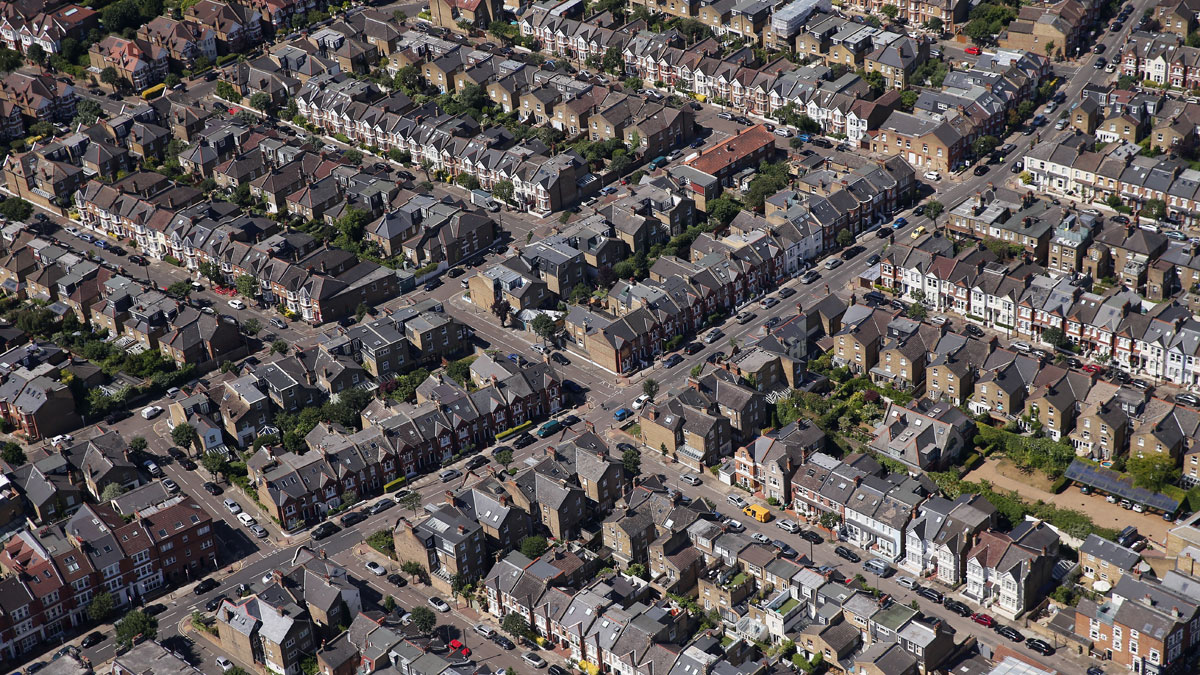London house prices: how much do first-time buyers need?
New figures show that Millennials have to find 13 times their annual salary to buy home in capital

A free daily email with the biggest news stories of the day – and the best features from TheWeek.com
You are now subscribed
Your newsletter sign-up was successful
The “affordability ratio” between how much first-time buyers need to earn to afford a property in London and how much they actually earn has jumped by 235% in less than two decades, new figures show.
Although house prices in the capital are falling, the data from the Office for National Statistics (ONS) shows the extent of the worsening housing crisis facing Millennials.
So how much is needed to get on the property ladder?
The Week
Escape your echo chamber. Get the facts behind the news, plus analysis from multiple perspectives.

Sign up for The Week's Free Newsletters
From our morning news briefing to a weekly Good News Newsletter, get the best of The Week delivered directly to your inbox.
From our morning news briefing to a weekly Good News Newsletter, get the best of The Week delivered directly to your inbox.
The ONS compared the typical earnings of people aged between 22 and 29 and the average house price at the lower end of the market, says The Times.
The data revealed that the typical Londoner in that age range earns £25,780 and the average lowest quartile house price is £336,000 – 13 times higher.
In 1999, house prices in the capital were 3.9 times the average annual earnings. Even five years ago, the gap was 9.8 times salary, reports The Daily Telegraph.
“To have to spend 13 times your earnings simply to get on the first rung of the property ladder is borderline obscene,” said Ross Boyd of mortgage site Dashly.
A free daily email with the biggest news stories of the day – and the best features from TheWeek.com
“While average UK house price growth has been slowing for some time now, the sheer lack of supply means prices are being propped up and that’s contributing to the continued lack of affordability in certain areas of the country.”
Lawrence Bowles, an analyst at estate agent Savills, added: “Not only have house prices as a multiple of income risen exponentially, the median first-time buyer deposit - at close to £100,000 - is a huge barrier.”
Outside London, first-time buyers need to spend at least ten times their income in the southeast, east and southwest of England. In other areas of England, it is between five and eight times.
But as the Daily Mail points out, banks rarely lend more than five times a buyer’s salary.
As a result, younger generations are being forced to rent for longer or turn to the “Bank of Mum and Dad”, says the newspaper.
-
 Switzerland could vote to cap its population
Switzerland could vote to cap its populationUnder the Radar Swiss People’s Party proposes referendum on radical anti-immigration measure to limit residents to 10 million
-
 Political cartoons for February 15
Political cartoons for February 15Cartoons Sunday's political cartoons include political ventriloquism, Europe in the middle, and more
-
 The broken water companies failing England and Wales
The broken water companies failing England and WalesExplainer With rising bills, deteriorating river health and a lack of investment, regulators face an uphill battle to stabilise the industry
-
 The pros and cons of tapping your 401(k) for a down payment
The pros and cons of tapping your 401(k) for a down paymentpros and cons Does it make good financial sense to raid your retirement for a home purchase?
-
 Saving for a down payment on a house? Here is how and where to save.
Saving for a down payment on a house? Here is how and where to save.the explainer The first step of the homebuying process can be one of the hardest
-
 Planning a move? Here are the steps to take next.
Planning a move? Here are the steps to take next.the explainer Stay organized and on budget
-
 What should you look out for when buying a house?
What should you look out for when buying a house?The Explainer Avoid a case of buyer’s remorse
-
 Why it’s important to shop around for a mortgage and what to look for
Why it’s important to shop around for a mortgage and what to look forThe Explainer You can save big by comparing different mortgage offers
-
 What will next year’s housing market look like?
What will next year’s housing market look like?The Explainer Here is what to expect from mortgage rates and home prices in 2026
-
 4 often overlooked home maintenance tasks that could cost you later
4 often overlooked home maintenance tasks that could cost you laterThe Explainer A little upkeep now can save you money down the road
-
 What are portable mortgages and how do they work?
What are portable mortgages and how do they work?the explainer Homeowners can transfer their old rates to a new property in the UK and Canada. The Trump administration is considering making it possible in the US.